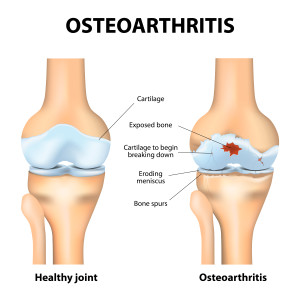Total knee replacement is one of the most common orthopedic procedures performed in Berks County and the rest of the nation. Over 700,000 procedures are performed every year in the U.S., and more than 4.5 million Americans have had at least one total knee replacement. If you suffer from chronic knee pain and lack of mobility, it may be time to consider this procedure.
 Dr. Stephen R. Soffer is a board certified orthopedic surgeon and a leading expert in the diagnosis and treatment of the musculoskeletal system, including bones, joints, ligaments, tendons, and muscles, and specializes in the treatment of many sports-related injuries.
Dr. Stephen R. Soffer is a board certified orthopedic surgeon and a leading expert in the diagnosis and treatment of the musculoskeletal system, including bones, joints, ligaments, tendons, and muscles, and specializes in the treatment of many sports-related injuries.
Dr. Soffer’s expertise has earned him inclusion as one of Castle Connolly’s America’s Top Doctors® in Orthopedic Surgery for the last five years. Castle Connolly Top Doctors are nominated by their peers and then rigorously screened by a doctor-directed research team before being selected for the list.
About Total Knee Replacement Surgery
There are two main contributing factors for total knee replacement – osteoarthritis and obesity.
The knees, and other joints, are commonly affected by osteoarthritis, a degenerative condition that wears down bones and cartilage as we grow older. It is a common condition in individuals over the age of 50, whose protective cartilage has become brittle and can no longer shield the knee joint from friction.
Another problem that affects the joints is obesity, which puts excess pressure on weight-bearing joints. Americans don’t generally get enough exercise, and we have more of a sedentary lifestyle than ever before, so our knees are paying the price. This has resulted in a greater need for total knee replacements among younger people, ages 18 to 64.
If medications, injections, losing weight or changing your level of activity are not helpful, your orthopedic surgeon may suggest total knee replacement surgery.
The Procedure
In total knee replacement surgery, also called total knee arthroplasty, the surgeon removes the diseased joint and then inserts a replacement joint (an orthopedic implant) in its place. The replacement joint imitates the function and feel of the natural knee, and restores the alignment and function.
Arthroscopic knee surgery can remove loose bone or cartilage pieces that may be causing pain. And partial knee replacement may be possible when there is damage to only one part of the joint. In this case, only the damaged parts of the knee are replaced. These procedures can sometimes delay or eliminate the need for a more complex total knee replacement.
Most people experience some pain following knee replacement surgery, but it generally diminishes in less than one week. Physical therapy plays a very important role in recovery and in regaining the range of motion in the knee.
The Recovery
If you work in a sedentary job, you can expect to return to work as early as two to four weeks after surgery. If you have a more rigorous job, you may have some restrictions for up to three months. Most people can resume activities like walking, gardening and golf fairly quickly as the knee gets stronger, but more strenuous activities, like running, tennis and downhill skiing. Most patients are close to full recovery after three months.
Thousands of individuals in Berks County and beyond have come to rely on Dr. Soffer’s experience when considering total knee replacement and other orthopedic procedures and care options. If you are anxious to eliminate your knee pain and return to an active lifestyle, call 610-375-4949 to find out how Dr. Soffer can help.



